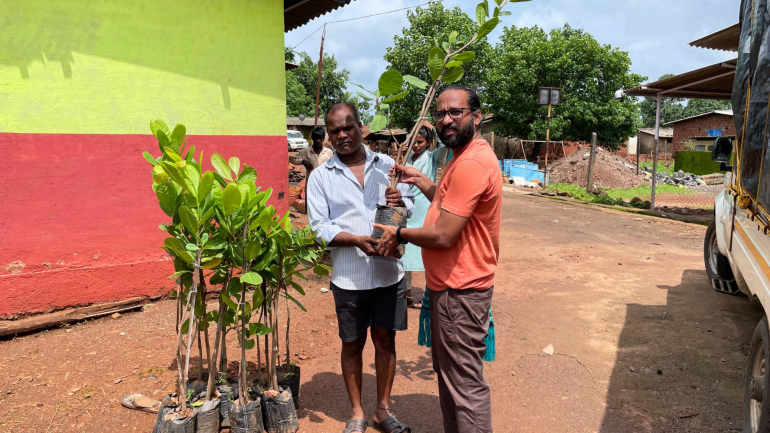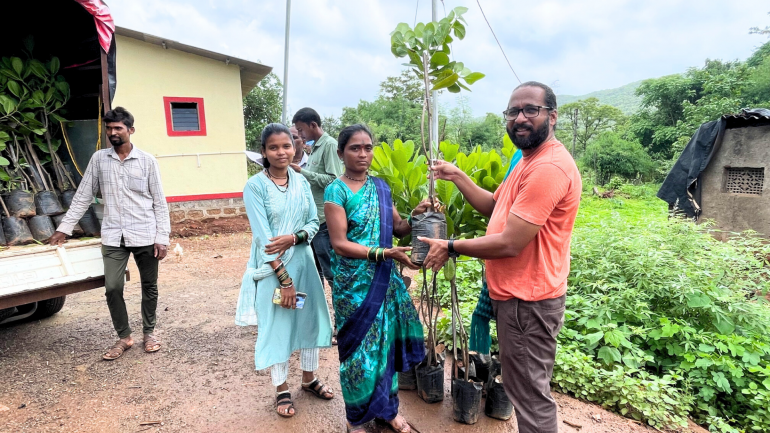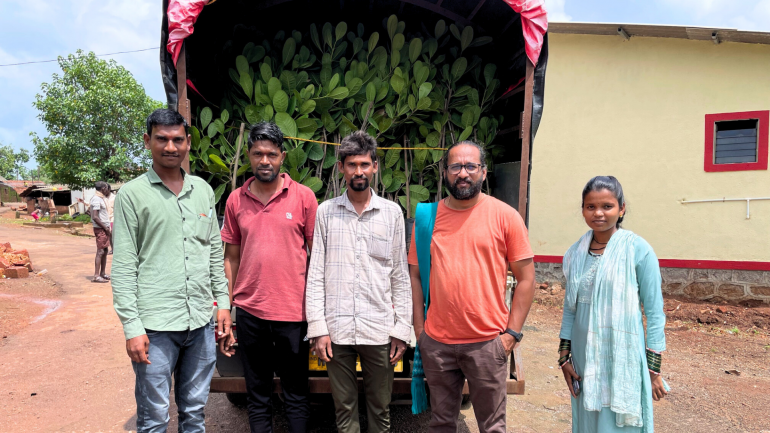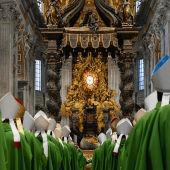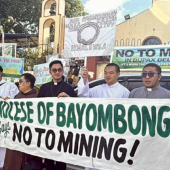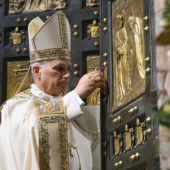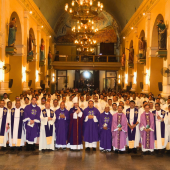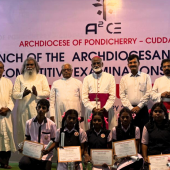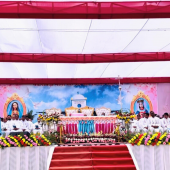Divine Word Missionaries in India and a Tribal Community Mark 10 Years of Laudato Si’ with a Plantation Drive
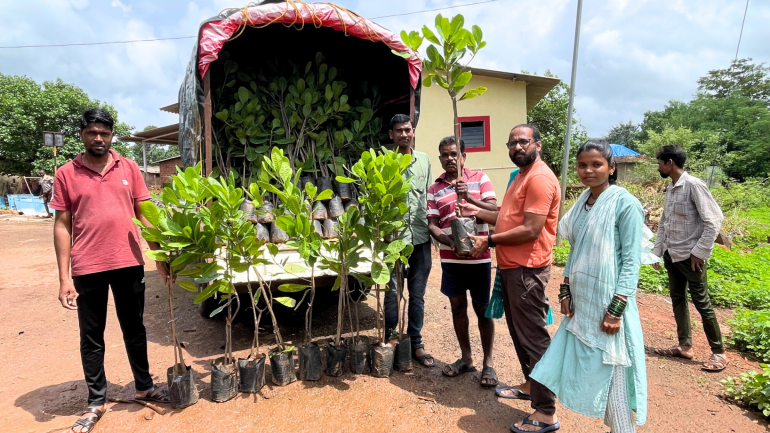
On June 22, 2025, the Janseva Society of Tala, a religious non-profit run by the SVD priests, commemorated World Environment Day by distributing and planting 1,200 saplings across villages of the Katkari tribal community in Raigad district, in the western Indian state of Maharashtra.
The saplings included fruit-bearing, medicinal, and indigenous varieties that will serve the community for generations.
This celebration held deeper meaning. It also marked the 10th anniversary of Laudato Si’, Pope Francis’s groundbreaking encyclical on caring for our common home. The day became a beautiful meeting of ecology and faith, action and spirituality, community and creation.
For Janseva Society, rooted in the spirituality of the Society of the Divine Word (SVD), this event embodied their mission. They work to integrate ecological consciousness with social justice, inspired by the Gospel and Church teachings.
The Katkari community represents one of Maharashtra’s most vulnerable and marginalized tribal groups. They live in remote hamlets with limited access to basic infrastructure. Mainstream development often excludes them. Yet these communities remain deeply connected to the land, forests, and seasons.
Janseva placed the Katkaris at the heart of this initiative. This was a compassionate gesture that recognized their relationship with nature. The organization saw them not as passive recipients but as vital stewards. Their survival, knowledge, and cultural identity are all tied to the environment.
In each hamlet, community members gathered under the early monsoon sky to receive saplings. Janseva volunteers worked alongside tribal elders and children. Many volunteers were young people inspired by Laudato Si’s message. Together, they dug, planted, and explained how to care for each sapling. These were not just trees. They were promises of shade, nutrition, medicinal healing, soil regeneration, and inclusion.
The initiative emphasized education and participation. Before distribution began, Janseva facilitators held small interactive sessions in each hamlet. They explained the importance of environmental conservation and sustainable living. Drawing from Laudato Si’s themes—the cry of the earth and the cry of the poor—they spoke about climate change, deforestation, and water scarcity.
These sessions used simple, accessible language. They were not lectures but conversations filled with stories, laughter, questions, and shared dreams. Everyone learned about the need for individuals to take part in healing the earth.
The saplings were carefully selected based on local needs and soil conditions. Fruit trees like mango, guava, and jamun promised nutritional value and economic potential. Medicinal plants such as neem and tulsi honored traditional knowledge. Shade trees and fast-growing species like bamboo would help restore depleted soil. They would also provide cooling in increasingly harsh summers.
This attention to ecological balance and long-term sustainability reflected Janseva’s respect for both science and indigenous wisdom. Every choice served the community’s immediate needs while protecting their future.
Walking with the Katkari people in this simple yet profound act of planting, Janseva translated the Pope’s message into living reality. They showed that faith becomes meaningful through action.
This initiative reflects Janseva’s long-standing philosophy. Genuine transformation must begin from the grassroots. The most marginalized communities must be at the center of any movement for change. For the Katkaris, often pushed to the edges of policy and development, this inclusion was deeply affirming.
The act of being consulted and empowered to plant and care for their environment reinforced their dignity. It recognized them as custodians of the earth, not forgotten people waiting for help.
In a world struggling with environmental crises, Janseva Society’s celebration stands out as a beacon of hope. Their work on World Environment Day and the decade of Laudato Si’ reminds us of an essential truth. Healing the Earth cannot be separated from healing our relationships with each other. The most vulnerable must be at the center of our efforts, not at the margins.
This small yet significant act in eight remote hamlets carries a message for the world. Real change happens when communities come together. It happens when faith meets action, when ancient wisdom meets modern challenges, and when hope is planted one tree at a time.
Radio Veritas Asia (RVA), a media platform of the Catholic Church, aims to share Christ. RVA started in 1969 as a continental Catholic radio station to serve Asian countries in their respective local language, thus earning the tag “the Voice of Asian Christianity.” Responding to the emerging context, RVA embraced media platforms to connect with the global Asian audience via its 21 language websites and various social media platforms.





